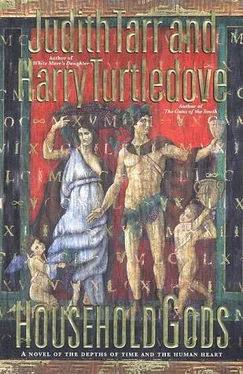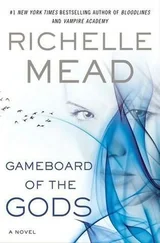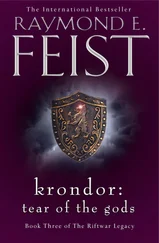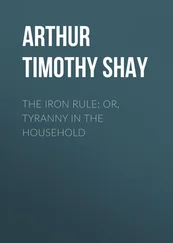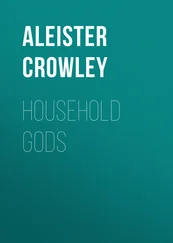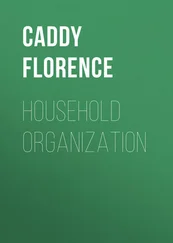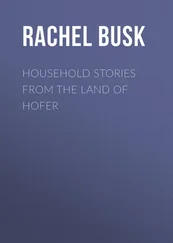Judith Tarr - Household Gods
Здесь есть возможность читать онлайн «Judith Tarr - Household Gods» весь текст электронной книги совершенно бесплатно (целиком полную версию без сокращений). В некоторых случаях можно слушать аудио, скачать через торрент в формате fb2 и присутствует краткое содержание. Жанр: Фэнтези, на английском языке. Описание произведения, (предисловие) а так же отзывы посетителей доступны на портале библиотеки ЛибКат.
- Название:Household Gods
- Автор:
- Жанр:
- Год:неизвестен
- ISBN:нет данных
- Рейтинг книги:5 / 5. Голосов: 1
-
Избранное:Добавить в избранное
- Отзывы:
-
Ваша оценка:
- 100
- 1
- 2
- 3
- 4
- 5
Household Gods: краткое содержание, описание и аннотация
Предлагаем к чтению аннотацию, описание, краткое содержание или предисловие (зависит от того, что написал сам автор книги «Household Gods»). Если вы не нашли необходимую информацию о книге — напишите в комментариях, мы постараемся отыскать её.
Household Gods — читать онлайн бесплатно полную книгу (весь текст) целиком
Ниже представлен текст книги, разбитый по страницам. Система сохранения места последней прочитанной страницы, позволяет с удобством читать онлайн бесплатно книгу «Household Gods», без необходимости каждый раз заново искать на чём Вы остановились. Поставьте закладку, и сможете в любой момент перейти на страницу, на которой закончили чтение.
Интервал:
Закладка:
“The hills on the other side of the Danube,” she whispered, not noticing or caring whether in English or Latin. She remembered those hills. They hadn’t been so thickly forested when she saw them, but she’d promised herself never to forget their shape, the way they rose and swelled under the soft blue-gray sky. She hugged herself. She was cold and warm, both at once: awed, astonished, terrified, overjoyed.
“Carnuntum! “ In Latin, with this body’s accent, it had a sweeter, stronger rhythm than she’d known before, and a lilt to it like the refrain of a song. “I’m in Carnuntum! This is the Roman Empire, and I’m in Carnuntum, and the year is — the year is — “
That, she didn’t know. It hadn’t been uploaded, or installed, or whatever the word was. As if her brain had hit a bad sector, the lawyerly part of her clicked awake, looked around, and said a flat, No. And, when the rest of her tried to argue with it: This isn’t real. This isn’t Carnuntum. You’re hallucinating.
Really, counselor? the rest of her asked a little too sweetly, the same tone she’d taken in court more than once, just before she moved in for the kill. So it’s not Carnuntum. and this isn’t the Roman Empire. How do I know enough about either of them to hallucinate anything this elaborate?
The lawyer-self couldn’t answer that. Nicole turned in the room, all the way around, from window back to window again. After awe, fear, hysteria, panic, disbelief, all the wild mishmash of shock and realization, she settled on the best of all, the one she should have had from the first: dizzy, singing joy.
“Thank you,” she said in a voice almost too full for sound. Then, louder: “Thank you, god and goddess! Thank you!” She danced across the room in a country-western step that wouldn’t be invented for — how long?
She paused before she spun right out of the window, and forced some small calm. So — what did she know? The Roman Empire had gone on for a long time, then declined and fallen. The label on Liber and Libera’s plaque, which she’d read often enough to have memorized it, said it dated from the second century A.D. She could reasonably suppose that that was the time she’d come back to, at least till she had a chance to ask. If that was when she was, the Achy-Breaky Shuffle wouldn’t be born for another eighteen hundred years.
Good thing, too, probably.
Still whirling with delight in her discovery, she pulled open a top drawer of the chest. She hesitated an instant, with a completely silly attack of guilt — this wasn’t her room, after all. These weren’t her clothes.
This wasn’t her body, either, but she was using it. She had to cover it somehow.
The drawer she opened held three or four loincloths like the one that clung clammily to her hips and buttocks. She pulled it off with a hiss of relief and put on a clean one.
Under the loincloths on the drawer lay a small and carefully made wooden box. It was not too heavy, not too light, longer than it was wide, about half as deep as the breadth of her hand. She lifted it out and set it on top of the chest. It wasn’t locked or latched. Its lid yielded easily to the pressure of her fingers.
A scent of dust and old wood wafted out of the box as she opened it, overlaid with a strong, musky perfume. A small pot lay inside the box. When she opened it, she found it half full of white powder. Two more, smaller yet, held a greasy salve the color of — “Sunset Blush,” Nicole said in English. She used Touch of Dawn herself. Sunset Blush was for serious occasions and for old beauties with fading eyesight, who thought its strong carmine red could trick people into thinking they were young again.
Nicole knew what this box was, then. A makeup set. Jumbled in with the pots were a wooden comb with very fine teeth; a pair of tweezers of bronze or tarnished brass; a thin and pointed piece of the same metal, about as long as her little finger, that might have been a toothpick; and another implement that looked like nothing so much as a coke spoon. She didn’t think the Romans had known about cocaine. Maybe it was the Romans’ answer to a Q-tip: not stylish, except perhaps in a campy way, but practical. Did they even have cotton here? she wondered. And what did they use for paring nails, if they didn’t have nail scissors or clippers?
She was losing herself in detail again. She had to stop doing that. She had to accept, to absorb. She had to be part of this world.
She contemplated the makeup jars, the implements, the block of what must be eyeliner — kohl? — and the little brushes, and thought of her makeup kit at home — at what used to be home. She drew a shuddering breath. She couldn’t be either stylish or practical, not by the standards of this place and time. Not till she could see other women, could know how they did it. That meant going out. That meant appearing in front of people, talking to them as she’d talked to the drover. Her hands were cold, the palms damp. The gods’ kisses itched and stung.
Shakily, she returned the jars and implements to the makeup box. She’d paid no particular attention to the square of polished bronze that she’d found on the bottom, except to take it out and see if something else lay underneath. As she went to put it back in, she caught her hand’s reflection in it, and the reflection of the box’s lid, and realized, with a little shock of recognition, what the thing was for.
“Speculu’!” she said, then repeated herself in English: “A mirror!” She snatched it out. Her hand was shaking almost too hard to hold the mirror, but she stilled it with a strong effort of will, and stared avidly at the face reflected in the bronze. It wasn’t clear, not like the silvered mirrors she remembered, but dark and faintly blurry. Still, it was enough for the purpose. It bore out what her hands had told her: whoever this was, it wasn’t Nicole Gunther-Perrin, West Hills, California, USA.
This face — long, strong-nosed, strong-chinned — looked to be about the same age as the one she’d left behind. The eyes were dark, as she’d more than half expected. When she smiled, the broken tooth was visible, but it wasn’t as bad as it had felt. A corner out of an incisor, that was all. It didn’t disfigure her. It made her look rather interesting.
Not bad, she thought, deliberately striving for objectivity — like a lawyer, think clearly, see all the angles, don’t involve the self if at all possible. This body she wore was no great beauty, but neither would it make people look away in the street. She considered it with some satisfaction. Beauty would have been too much. This was a good-looking woman, attractive without being too much so, and those cheekbones were everything she’d ever dreamed of when she was growing up. Her — other — face hadn’t had any to speak of.
She smiled at the face in the mirror. It smiled back, dark eyes sparkling — no muddy catty green; and those black-brown curls framed it quite nicely indeed. “I’ll do,” she said. “I’ll definitely do.”
She laid the mirror carefully in the makeup case and put it away. The odd feeling of trespass faded as she explored the rest of the drawers in the chest. They held several pairs of thick wool socks, not too unlike the ones you could order from L. L. Bean for winter weekend wear, and tunics of about the same style as the one she was wearing. Some were of wool, others, lighter, of linen. A couple were dark blue, one a rusty brown, and the others not only undyed but not particularly clean. There was a definite limitation to the color scheme here, and not too much regard for hygiene, either. With the tunics she found a pair of woolen cloaks, one old and growing threadbare, the other so new it still smelled powerfully of sheep.
Читать дальшеИнтервал:
Закладка:
Похожие книги на «Household Gods»
Представляем Вашему вниманию похожие книги на «Household Gods» списком для выбора. Мы отобрали схожую по названию и смыслу литературу в надежде предоставить читателям больше вариантов отыскать новые, интересные, ещё непрочитанные произведения.
Обсуждение, отзывы о книге «Household Gods» и просто собственные мнения читателей. Оставьте ваши комментарии, напишите, что Вы думаете о произведении, его смысле или главных героях. Укажите что конкретно понравилось, а что нет, и почему Вы так считаете.
